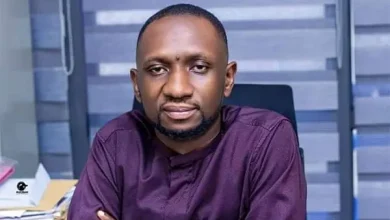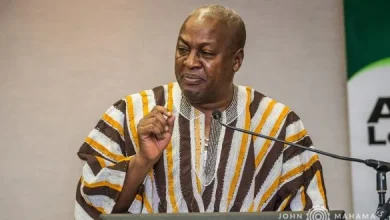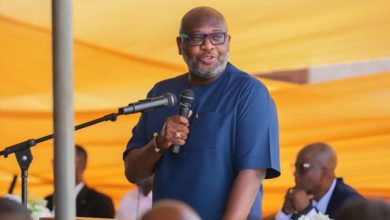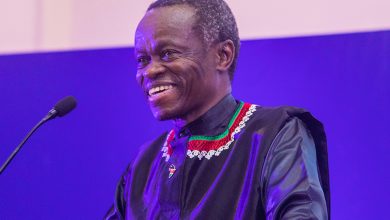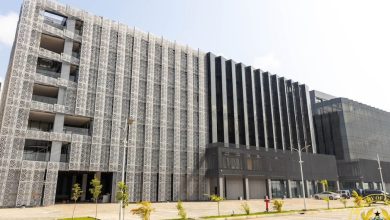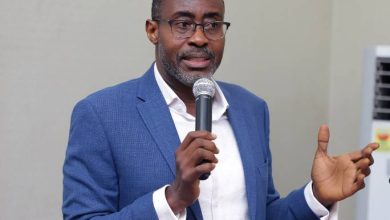Be courageous, firm in face of challenges – Okyenhene to journalists
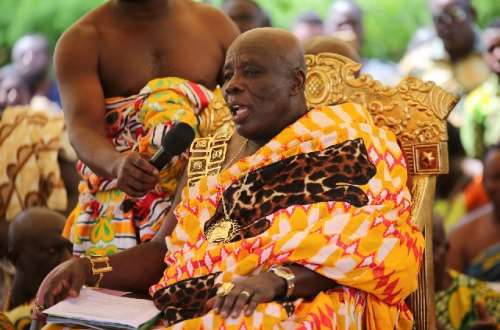
The Okyenhene, Osagyefuo Amoatia Ofori Panin II, has challenged journalists not to be passive in the face of evil and the challenges that accompany the profession.
Speaking at the launch of a journalism manual for the digital age in Accra last Thursday, he emphasised the critical role of journalists in holding those in power accountable and speaking truth to authority, and urged journalists to be courageous.
Osagyefuo Ofori Panin added that courageous journalism required a willingness to challenge the status quo and seek the truth, even in the face of difficulty. “We can’t be passive in the face of evil; let’s uphold the truth because we need it now or never.
“Let us create a culture of courage where journalists can flourish. Don’t be afraid to speak truth even when it is difficult; challenge the status quo even when it’s risky,” he said.
The Okyenhene further called on the public to create an environment where journalists could do their work without fear or hindrance, adding: “Support journalists to pursue the truth. Reward their bravery; don’t intimidate or harass them; encourage them”.
Manual
The book, titled: “Truth over speed, a journalism manual for the digital age”, was authored by veteran journalist, Nana Kwasi Gyan-Apenteng, who is also a consultant in Communication, Media and Culture.
The 137-page manual has been divided into 36 sections. It gives a general overview of the media landscape in Africa and the ethical decision-making in journalism.
It goes further to explain the different types of journalism; the power of storytelling in journalism; media ownership and the search for responsibility; news writing in terms of mastering the structure and variations.
Other areas the manual tackles include professionalism and ethics in news gathering; finding the compelling story; freelance journalism; investigative journalism; writing feature articles and editorials.
The author, who is a former Chairman of the National Media Commission and past President of the African Communication Regulators Network, explained that the manual was a culmination of his years of practice backed by his passion for the journalism profession.
Mr Gyan-Apenteng, who started his journalism career with the Ghana New Agency in Tamale in 1973, and rose to prominence in journalism practice to become the acting Editor of the Daily Graphic, and subsequently the Editor of The Mirror, uses his experiences in the inky fraternity to simplify the various topics addressed in the manual.
He said the manual also included experiences from his training of journalists in Liberia in 1997, and a joint partnership with telecommunications company, MTN, to engage journalists across the country.
“I hope this will be something journalists can reference to and help improve their craft,” he said.
Review
A Professor of Journalism and Mass Communication, Prof. Kwame Karikari, said the expansion of media outlets, coupled with the rise in the use of the internet in the digital age, had seen many people enter the profession without training.
That, he said, posed critical challenges to professional standards and quality, adding that unprofessional journalism did not only excite intolerance, but also promoted anger and mistrust among the public.
Recommending the book for all, he said: “This manual is a welcome guide to professional practice in today’s complex environment of information overload, over-abundance and speed. In this environment, truth, credible and comprehensive information are at great risk of compromise.
“These critical challenges, and the myriad of problems of professionalism in the practice of journalism in Ghana and Africa today are the tasks this manual effectively grapples with,” he added.
Source: graphic online



